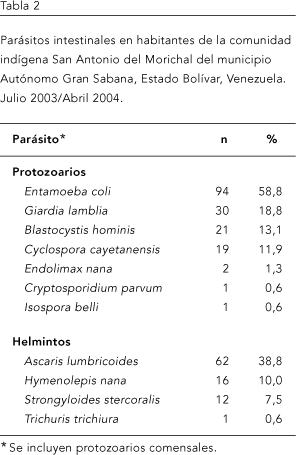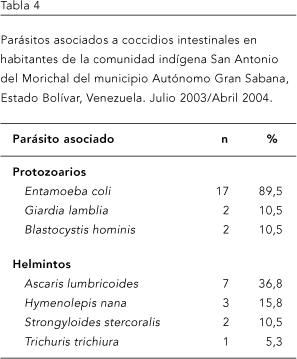The intestinal coccidioses caused by Cryptosporidium parvum, Isospora belli, and Cyclospora cayetanensis are parasitoses of major medical importance, but many epidemiological aspects of these infections are still unknown in Bolívar State, Venezuela. To determine the prevalence of intestinal parasites and especially of intestinal coccidiosis, an indigenous population in San Antonio de Morichal was evaluated from July 2003 to April 2004. Stool samples obtained by spontaneous evacuation were preserved in potassium dichromate 2.5% and examined by the formalin-ether concentration method and Kinyoun staining. Of the 160 indigenous people examined, 92.5% (148 cases) were infected. Entamoeba coli (58.8%), Ascaris lumbricoides (38.8%), and Giardia lamblia (18.8%) were the most prevalent intestinal parasites. Coccidiosis prevalence was 13.1%, and cyclosporiasis was the most prevalent with 11.9% (19 cases). One subject with C. parvum oocysts and another with I. belli oocysts were diagnosed. There was no difference according to sex (p > 0.05) and age (chi2 = 5.6; f.g. = 6) among individuals infected with C. cayetanensis. Of these, two cases had only diarrhea. In conclusion, a high prevalence of intestinal coccidiosis infection was found among indigenous people from this community, with C. cayetanensis as the most prevalent infection.
Coccidiosis; Cyclospora; South American Indians




